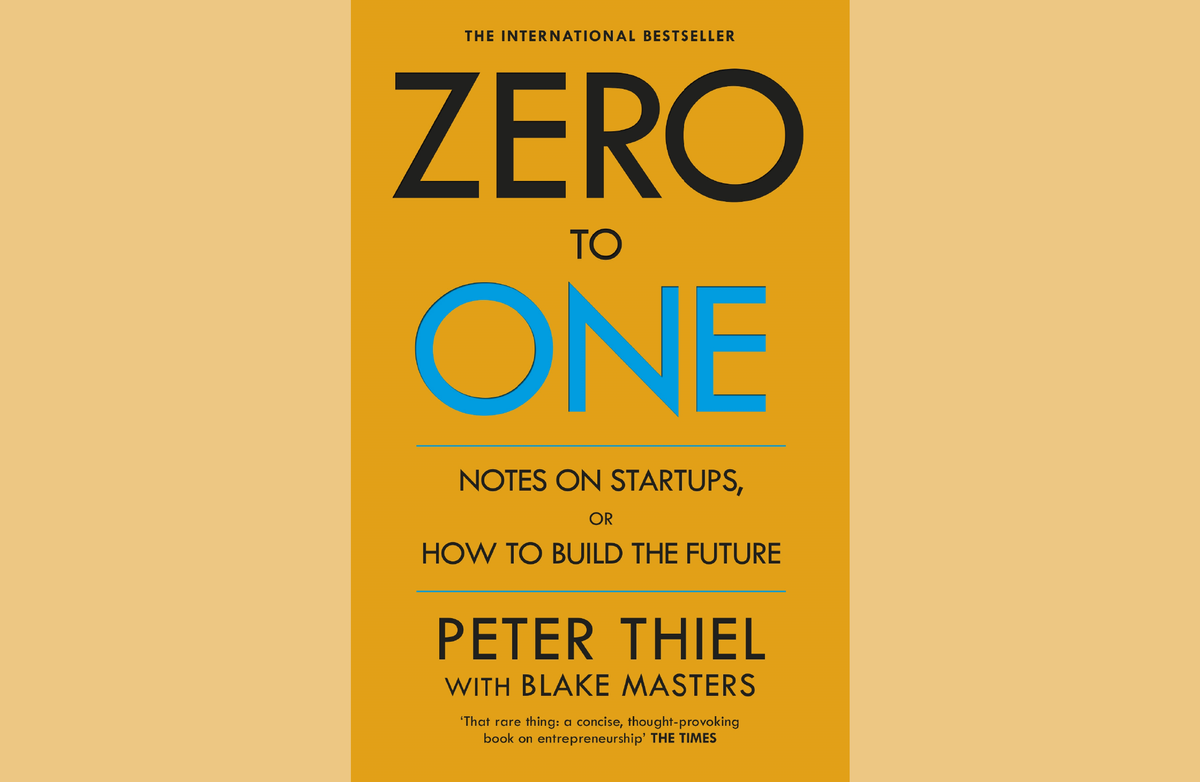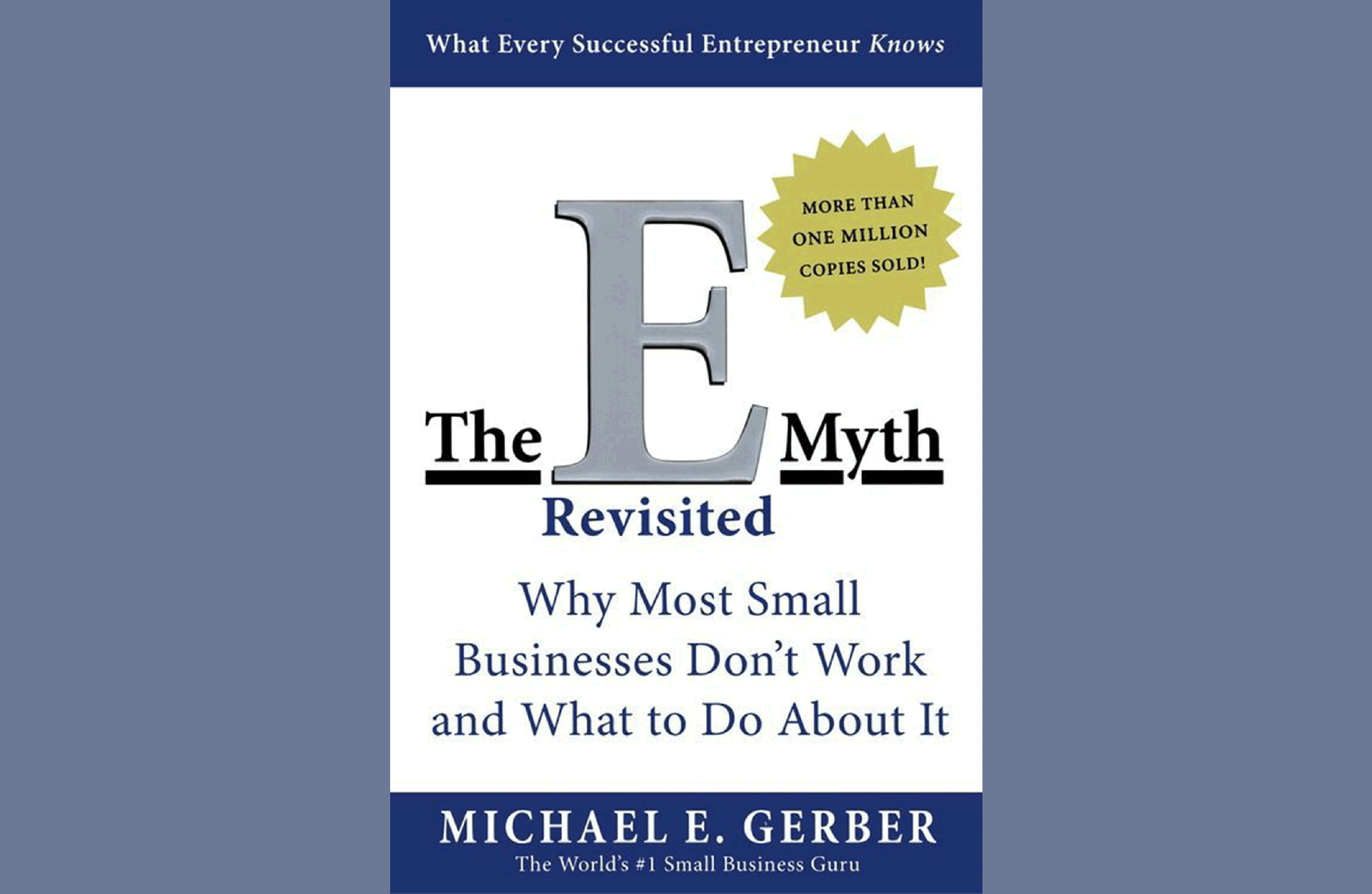How Founders Can Start Scaling With Proven Ways
Learn how founders can start scaling their businesses using proven strategies. Explore insights from Peter Thiel’s Zero to One, Michael Gerber’s The E-Myth Revisited, and a case study on Reid Hoffman’s LinkedIn success to navigate sustainable growth.

Many founders’ ultimate goal in the entrepreneurial journey is scaling their business. Scaling is growing a company sustainably without compromising quality or running into operational bottlenecks. However, before a founder can successfully scale, they must cross a critical threshold where their business moves from planning and early execution to growth and sustainability.
This moment, called Crossing the Threshold, is a pivotal stage where founders embrace risk, develop systems, and make the strategic decisions necessary for scaling. In this post, we’ll explore proven ways founders can start scaling their businesses, using critical insights from Peter Thiel’s Zero to One on innovation and monopoly-building and Michael Gerber’s The E-Myth Revisited on creating scalable systems. We’ll also dive into a case study of Reid Hoffman’s success with LinkedIn to offer valuable insights on the journey from concept to scale.
The Hero’s Journey to Scaling: Understanding "Crossing the Threshold"
In the context of scaling, Crossing the Threshold is the founder's commitment to move from an idea or early product to a full-fledged business capable of growing exponentially. According to Peter Thiel in Zero to One, this moment is about creating something entirely new that doesn’t yet exist in the market. Thiel emphasizes the need for innovation, not imitation, and for founders to focus on building businesses that can dominate their market or niche—creating a monopoly.
This stage also requires the mindset shift described by Michael Gerber in The E-Myth Revisited. Gerber stresses the importance of working on the business, not just in it. This approach means building systems and processes that will allow the company to scale efficiently without requiring the founder to micromanage every detail.
Reid Hoffman’s journey with LinkedIn illustrates how these concepts come together. Hoffman didn’t just create another social network; he innovated by identifying a gap in professional networking and building a platform with systems that could scale to meet growing demand.
Personal Insights: Scaling Through Innovation and Structure
As a founder, I’ve learned that scaling requires innovation and structure. Thiel’s philosophy from Zero to One—that actual progress comes from creating something new—resonates deeply with my experience. “True progress comes from creating, not copying.” At Tribal DDB, when we developed Monopoly City Streets with Google Maps, it wasn’t just a viral hit—it was an innovative concept that pushed the boundaries of digital interaction. This type of bold innovation is essential for scaling because it sets a product or service apart in a competitive market.
“True progress comes from creating, not copying.”
However, innovation alone isn’t enough. Gerber’s The E-Myth Revisited emphasizes that scalable systems are crucial for long-term success. In ventures like Apollo Advisors and Allrites, I discovered that transparent processes, templates, and roadmaps are the backbone of any growing company. “It’s not the leap that matters, but how you sustain it.”Without these systems, scaling leads to chaos, inefficiency, and burnout. Gerber advises that balancing creativity with operational efficiency is critical to sustainable growth.
It’s at this part of the journey that I realized the mindset of a founder at the start no longer works when you need to scale and grow. In the early days, I could quickly get everyone in a room and solve a problem. However, once you reach the point of scaling, you need to build systems and establish middle management. Without that, the old approach from the early days will fail. This shift in mindset is essential for founders who want to sustain long-term growth and success.
Proven Scaling Strategies
Scaling a business effectively requires not just ambition but a well-thought-out strategy. Founders must be able to navigate growth while keeping their vision intact and maintaining operational control. Here are the essential methods for scaling a business:
Raising Capital Strategically
One of the earliest and most critical steps in scaling is raising capital. Peter Thiel says the key is pitching your innovation and monopoly potential. Investors are likelier to back businesses that show they can dominate a niche by offering something groundbreaking. Communicating how your product or service creates something new rather than improving on existing solutions is crucial.
However, securing capital isn’t just about raising money but finding the right partners. Thiel highlights the importance of obtaining capital from investors who align with your long-term vision. In The E-Myth Revisited, Michael Gerber adds that capital should be used to build scalable systems, ensuring resources aren’t drained inefficiently. It’s about finding sustainable growth, not just putting out fires.
Building a Scalable Team
As the business grows, building the right team is essential. It’s not just about expanding the workforce but creating a team capable of innovation. Thiel stresses that every hire should contribute to pushing the boundaries of what’s possible, helping to make the business more competitive and innovative.
At the same time, Gerber emphasizes the importance of delegation and systems thinking. Founders must step back from micromanaging and empower their team to take ownership of day-to-day operations. Delegation frees up the founder’s time to focus on strategy, ensuring that the business continues to grow without them being involved in every decision. Gerber’s wisdom rings true: “Products ignite; systems sustain.”
Creating Scalable Systems
Scalable systems are essential for a business to thrive. Gerber emphasizes automating wherever possible—whether that’s customer onboarding, inventory management, or sales reporting. Automation increases efficiency and frees your team to focus on high-value tasks that drive innovation.
Thiel adds that technology is not just a tool for automation but for innovating within the industry. Technology should be used to differentiate your business from competitors and give you a competitive edge. Creating replicable processes is another critical component. Gerber highlights the importance of standardization, which allows your business to grow without sacrificing quality. Thiel complements this by encouraging founders to design systems that support their monopoly strategy, ensuring they can dominate their niche while maintaining operational control.
Flexibility is also crucial. Thiel advises founders to build systems that allow quick pivots in new or emerging markets. Gerber reinforces this by advocating for systems that can respond to changes and challenges without causing disruption. This combination of flexibility and structure enables businesses to thrive in fast-paced, competitive environments.
Challenges of Scaling
While scaling offers tremendous growth opportunities, it also brings unique challenges. Founders need to anticipate and address these challenges to scale successfully.
Managing Growing Complexity
As businesses expand, operational complexity increases, and founders must manage it without sacrificing efficiency. Thiel advises founders to maintain simplicity in products and processes, noting that over-complication can dilute the business’s competitive edge. Staying focused on core competencies allows a company to scale without becoming bogged down by unnecessary complexities.
Gerber complements this by emphasizing the need for simple, repeatable systems. Systems that can be easily replicated allow a company to grow without losing control. These systems ensure that as the company scales, it maintains the same quality and operational efficiency that made it successful.
Market Saturation and Competition
As a business grows, it will inevitably face increased competition and market saturation. Thiel suggests that continuous differentiation is essential to staying ahead. Founders should always look for ways to make their product or service unique and challenging to replicate. Constant innovation allows a company to maintain its dominance in the market.
Gerber adds that operational efficiency is crucial in staying ahead of competitors. The ability to scale more efficiently than others becomes a significant competitive advantage. By implementing well-designed systems that streamline operations, founders can offer superior customer experiences and maintain a higher level of quality than their competitors.

Case Study: Reid Hoffman - Launching and Scaling LinkedIn
Reid Hoffman’s journey with LinkedIn is one of the most potent examples of how a founder can successfully cross the threshold and scale a business using strategic planning, innovation, and systems thinking. From the early days of LinkedIn’s creation to its ultimate acquisition by Microsoft, Hoffman’s approach to scaling reflects Peter Thiel’s focus on building monopolies (Zero to One) and Michael Gerber’s emphasis on systems and processes (The E-Myth Revisited).
Identifying the Market Opportunity
When Reid Hoffman set out to build LinkedIn in 2002, the professional networking landscape needed to be more present. Hoffman identified a gap in the market and focused on creating something entirely new, aligning with Thiel’s philosophy of Zero to One. LinkedIn was not just another social network—it was a monopoly in professional connections, a unique offering that quickly dominated its niche.
When creating a Scalable Product from Day One, Hoffman followed Gerber’s advice by focusing on building a scalable product from the beginning. LinkedIn’s infrastructure was designed to handle large-scale growth, ensuring the platform could support demand without breaking as more users joined. Hoffman’s team adopted an iterative development process, gathering feedback and improving the platform, much like Gerber’s emphasis on constantly improving systems.
Leveraging Network Effects to Drive Growth
A significant part of LinkedIn’s success came from its ability to capitalize on network effects, a strategy aligned with Thiel’s philosophy of creating monopolies. As more people joined LinkedIn, the platform became exponentially more valuable, leading to rapid organic growth.
Balancing Free and Paid Services
Hoffman strategically balanced free access and premium features, a tactic supported by Thiel’s and Gerber’s frameworks. Free access allowed LinkedIn to scale quickly, while premium features provided the revenue needed to sustain growth. This balance between growth and revenue generation is a crucial lesson for founders aiming to scale.
Acquisition by Microsoft
LinkedIn’s acquisition of Microsoft for $26.2 billion in 2016 reflects how Hoffman built a monopoly-driven platform with scalable systems, embodying the core principles of Zero to One and The E-Myth Revisited. LinkedIn’s infrastructure, strategic growth, and market dominance made it an attractive acquisition, ensuring its continued scalability.
Recommended Books for Scaling Success

Zero to One by Peter Thiel Peter
Thiel’s Zero to One is essential for any foundewho is r serious about scaling their business by creating something unique. Thiel advocates for building monopolies—businesses that dominate their market, leaving little to no competition. According to Thiel, real success comes from innovation, not competition. He emphasizes the importance of thinking differently, creating products or services that didn’t exist before, rather than merely improving on what’s already out there.
Thiel’s framework is valuable for founders at the scaling stage because it focuses on a business’s long-term sustainability. He argues that incremental improvements (going from 1 to 2) won’t set you apart in the market. Instead, you must leap ahead and create something new (going from 0 to 1). This concept is central to building a monopoly—a company that controls its market through innovation, intellectual property, or unique positioning.
Key takeaways from Zero to One:
- Monopoly-building: Founders should aim to dominate a niche market by offering something new and unique instead of competing in a saturated space.
- First-mover advantage: The first company to solve a problem in a new way often has an enduring advantage over competitors.
- Bold thinking: Scaling isn’t just about growing; it’s about transforming people’s thoughts about your industry. Thiel pushes founders to think big, be bold, and aim to reshape their market.
Zero to One for founders aiming to scale provides the mindset and strategic framework needed to create breakthrough products and build businesses that thrive through innovation and disruption.

The E-Myth Revisited by Michael E. Gerber
Michael Gerber’s The E-Myth Revisited is a must-read for any founder focused on scaling their business through systematic processes. The book delves into the common misconception that entrepreneurs should be involved in every aspect of their business. Gerber calls this the Entrepreneurial Myth, where founders mistakenly believe they must wear all hats—being the technician, the manager, and the entrepreneur. He argues that this approach limits the business’s growth potential, especially as it begins to scale.
Gerber’s core message is that successful businesses are built on systems, not on the founder’s ability to micromanage every detail. He emphasizes the importance of Creating replicable processes that allow the company to run smoothly, even when the founder steps away. This approach makes the business scalable because it can grow without being dependent on the founder’s direct involvement in every decision.
Key takeaways from The E-Myth Revisited:
- Work on your business, not just in it: To scale effectively, founders must shift their mindset from doing all the work themselves to building systems that can operate independently.
- The franchise prototype model: Gerber suggests thinking of your business as a prototype for a franchise, where everything is streamlined and can be replicated. This ensures consistency in operations as you scale.
- Delegation and empowerment: Building a team to manage day-to-day tasks is crucial as your business grows. Empower your employees to take ownership of their roles within a structured system.
The E-Myth Revisited is a practical guide for scaling because it addresses the most common barriers to growth: the founder's inability to let go and trust the systems they’ve built. Gerber’s emphasis on systematization and delegation makes this book invaluable for founders looking to create a business that can scale efficiently and sustainably.
By combining the innovative mindset from Zero to One with the system-building approach from The E-Myth Revisited, founders can scale their businesses and sustain long-term growth. Both books provide a complementary roadmap for scaling: Thiel encourages bold, groundbreaking strategies to dominate markets, while Gerber offers the operational tools necessary to make that vision a reality.
Call to Action: Taking Your Business to the Next Level
The time to act is now. Suppose you’re a founder looking to scale your business. In that case, the strategies shared here—innovating like Peter Thiel’s Zero to One and building systems like Michael Gerber’s The E-Myth Revisited—are proven methods to help you succeed. Don’t get stuck in the mindset that worked in the early days. Scaling requires new thinking, structure, and commitment to sustainable growth.
Start today by evaluating your current systems and strategies. Ask yourself:
- Are you building something new and bold or just improving on what’s already there?
- Do you have scalable systems in place, or are you still solving problems on the fly?
The best time to make these changes is before growth overwhelms your business. Whether raising capital, assembling your team, or refining your systems, take action now to ensure you’re ready to scale effectively. Remember, success isn’t about the leap—it’s about sustaining momentum after you’ve taken it.



